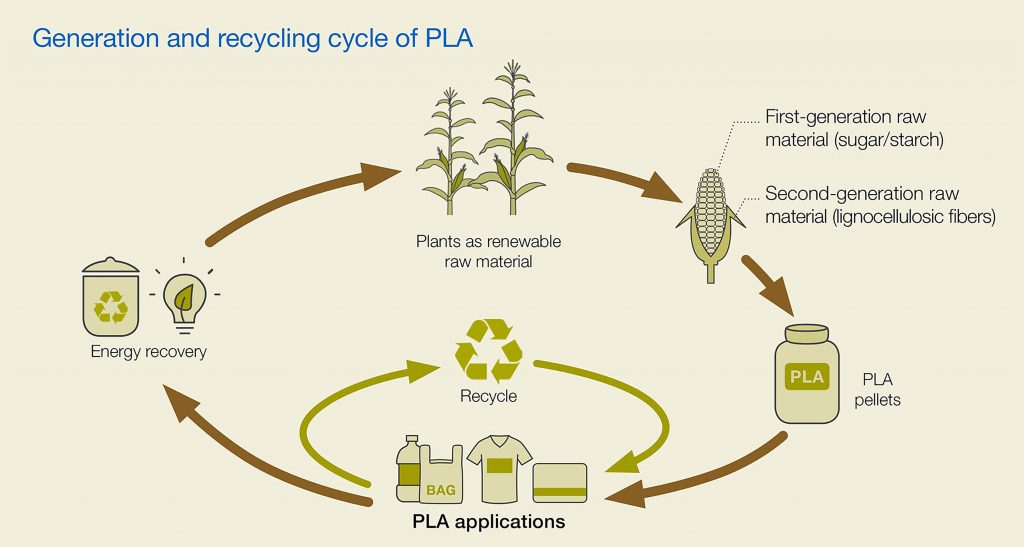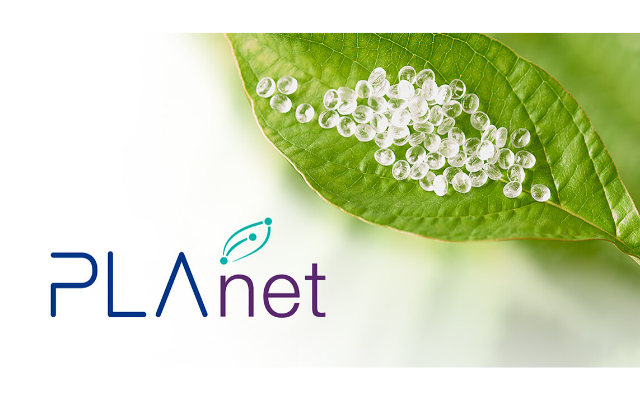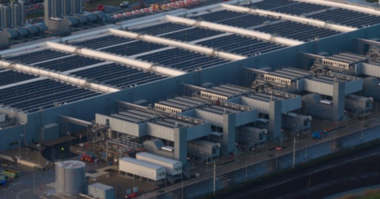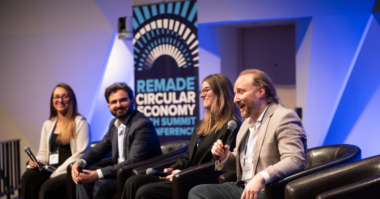Contributor: Dorota Zoldosova, Head of Marketing and Communications, Sulzer Chemtech Ltd.
Sulzer’s PLAnetTM bioplastic technology creates sweet new market opportunities for sugar producers
The growing appetite for sustainable bioplastic made from polylactic acid (PLA) is opening new doors to corn, sugar beet and sugar cane farmers. Their produce offers access to unique opportunities for business growth. How can the agricultural industry get a foothold in this market landscape?
Alex Battù, Sales Manager at Sulzer, looks at how transforming sugars into PLA bioplastic can benefit farmers and sugar producers.
A number of alternative, non-traditional market opportunities can help agricultural businesses to add value to their products and maximize revenue. In particular, the produce from corn, sugar cane and sugar beet farmers can be used as a key feedstock for new, greener materials, such as PLA biopolymers for biodegradable plastics. These help to reduce our reliance on non-renewable and often non-recyclable fossil fuel-based products.
A great future for bioplastics
While the need for sustainable, recyclable and biodegradable alternatives to conventional plastic grows steadily, PLA offers an economical and versatile solution for a wide range of different applications. These include raw materials for 3D printing, textiles, electronic devices, automotive components and packaging for the food and beverage sectors. In addition, thanks to PLA’s biocompatibility, the material is suitable for medical use, e.g. suture yarns and implants.
Getting a foothold in the PLA market is more easily achieved than entering other sectors that can be highly regulated and very competitive. Furthermore, while bioplastics is currently considered a niche area, the market is skyrocketing and is expected to at least triple its market size by 2025.

PLA biopolymers offer a sustainable, recyclable and biodegradable alternative to conventional plastic, supporting a circular economy for this material.
Grow your PLA business
Sugar producers and businesses involved in plastic processing can enter the emerging PLA market and seize the opportunities it presents by setting up processing facilities that address one or more aspects and stages of PLA-based bioplastic production.
The conversion of plant resources into PLA involves different steps. First, it is necessary to ferment sugars from sugar-rich crops to obtain lactic acid (LA). The next step consists of converting LA into lactide monomers. These intermediate products subsequently need to be purified with distillation and crystallization equipment before undergoing ring opening polymerization that leads to PLA.
In addition to these necessary process steps , manufacturers may want to mix coloring or additives with the polymer, depending on the final product application. Also, a downstream PLA pelletizer produces solid pellets, simplifying both transportation and storage. It is possible to use these PLA pellets in a variety of ways to suit their intended application. They can be extruded into a sheet or film, injection molded, cast into sheets, spun into fibers or even foamed.
Due to the number of intermediate compounds in PLA-based bioplastic manufacturing, agricultural businesses can build their capabilities in stages and over time in order to grow their operations organically. For example, it is possible to start by setting up LA production plants, which can deliver the monomers to process industries in the LA downstream sector, or develop lactide to PLA skid mounted units. When the agri-business is ready to grow, it could then implement all the process sections for crop-to-PLA production plants.

Sugar producers and businesses can now access new market landscape, producing plant-based plastic that is recyclable and compostable.
Integrated, customized PLA technology
To successfully enter the PLA value chain, manufacturers need a reliable partner, able to provide integrated solutions that address all the aspects and stages of production. A successful framework is PLAnet™, an initiative developed by Sulzer, Futerro and TechnipFMC to offer a one-stop-shop where customers can benefit from direct access to a fully integrated solution for the production of PLA and its intermediates.
Sulzer, the leader in separation and mixing technology, and its partners are market leaders in engineering solutions for the production, purification and polymerization of LA and lactides. They can design, deliver and implement high-quality, turnkey equipment for complete PLA manufacturing. As a result, PLAnet™ supports the construction of plants of any size, including PLA facilities with throughputs as high as 100’000 tons per year.
In order to help agricultural businesses handle the different process stages of PLA-based bioplastic manufacturing, Sulzer can look at setting up the various facilities in different stages and over time, integrating different plants together, as well as building modular equipment. In this way, farmers and sugar producers can grow their operations organically.
About Sulzer
Sulzer is a global leader in fluid engineering. We specialize in pumping, agitation, mixing, separation and application technologies for fluids of all types. Our customers benefit from our commitment to innovation, performance and quality and from our responsive network of 50 world-class manufacturing facilities and 100 service centers across the globe. Sulzer has been headquartered in Winterthur, Switzerland, since 1834. In 2018, our 15’500 employees delivered revenues of CHF 3.4 billion. Our shares are traded on the SIX Swiss Exchange (SIX: SUN).
The Chemtech division is the global market leader in innovative mass transfer, static mixing and polymer solutions for petrochemicals, refining, LNG, biopolymers and biofuels. Our product offering ranges from process components to complete separation process plants, including licensing. Customer support covers engineering services and field services to tray and packing installation, tower maintenance, welding and plant turnaround projects.




